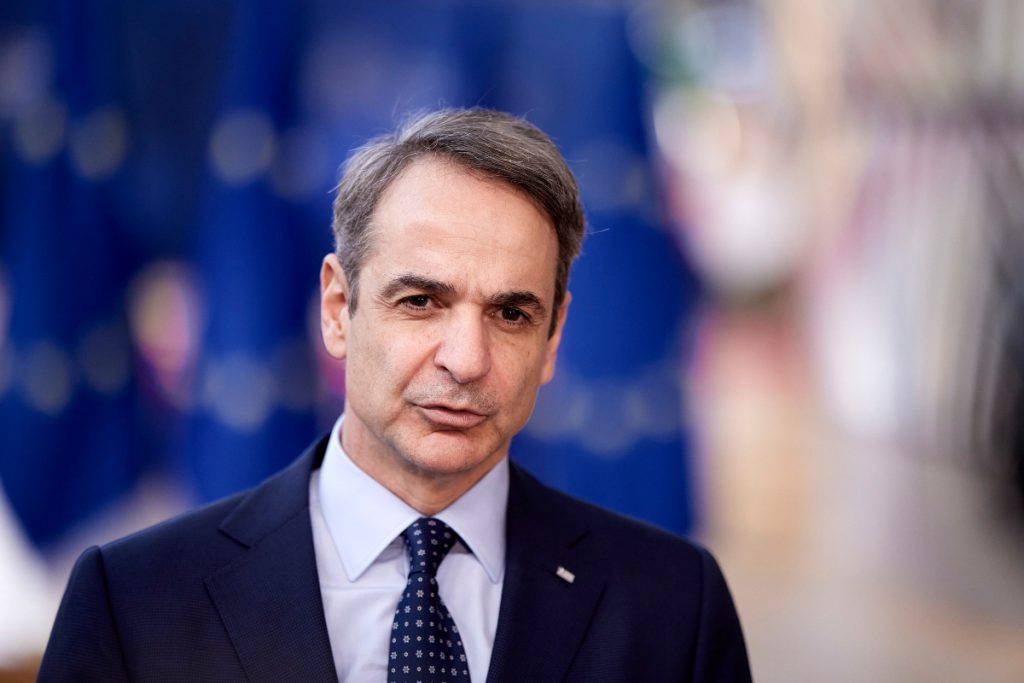President Trump said his administration would impose 25% tariffs on Colombian goods coming into the U.S., retaliating against the South American country for rejecting two U.S. flights carrying migrants back home.
The move, which would mark Trump’s first use of tariffs since his inauguration last week, came Sunday after Colombian President Gustavo Petro ’s government said he had blocked U.S. flights of deported Colombians. Petro’s decision marked a challenge to Trump’s policy of removing migrants who entered the U.S. illegally, especially criminals.
Trump responded in a post on his Truth Social platform that the 25% tariffs would be raised to 50% in a week. Trump also said he was issuing a travel ban for Colombian government officials and visa sanctions on people connected to the country’s government.
“These measures are just the beginning,” Trump wrote. “We will not allow the Colombian Government to violate its legal obligations with regard to the acceptance and return of the Criminals they forced into the United States!”
A senior administration official said that as of Sunday afternoon, the formal orders were still being drafted for Trump to sign, likely later in the day. The official also said the U.S. and Colombia were negotiating on whether the tariffs could be avoided.
Early Sunday morning, the Colombian president said on his X account that the “U.S. cannot treat Colombian migrants like criminals,” adding: “I disallow the entry of American planes with Colombian migrants to our territory.”
Two U.S. military C-17s had diplomatic permission to land in Colombia when they left San Diego carrying roughly 80 migrants each, a defense official said, but that authority was revoked Sunday en route. The planes then returned to the U.S., the official said.
Hours later, the U.S. responded by closing its visa section at the U.S. Embassy in the Colombian capital, a U.S. official said.
The tariffs and sanctions on Colombia were to be imposed under the International Emergency Economic Powers Act, the senior administration official said. That law grants the president broad authority to impose duties and penalties on other nations when he declares an economic emergency. The act hasn’t previously been used to impose tariffs, though President Richard Nixon used a precursor to the law to impose 10% tariffs on all imports in 1971.
The U.S. imported $16.1 billion in goods from Colombia in 2023, ranking it 26th—behind Sweden and ahead of Australia—among import partners, according to Census Bureau data. Crude oil accounted for roughly a third of that dollar value. Other top commodities the U.S. receives from Colombia include gold, coffee, bananas and fresh-cut roses.
In 2023, the U.S. accounted for 28% of the value of Colombia’s exports, more than any other trading partner, according to United Nations data. The U.S. sent $17.7 billion of goods to Colombia in 2023—giving the U.S. a slight trade surplus—with top commodities including light oils, corn, and civilian aircraft and parts, according to the Census Bureau.
A senior State Department official said the Trump administration was surprised by Petro’s message on X, issued at 3:41 a.m. Eastern Time, prohibiting the flights from landing.
Documents viewed by The Wall Street Journal showed that the Petro government had approved the arrival of the two military flights. Petro also said on X, before the flights, that two planes with deported Colombians would be arriving at 6:45 a.m. and 10 a.m. and his government would “receive them with flags and flowers.”
Later in the morning, Petro said on X that he had ordered the return of the planes, suggesting that had done so because they were military aircraft. “We will receive our countrymen on commercial planes, without them being treated like criminals,” he wrote. Just minutes after Trump said he would impose tariffs, Petro’s office said the government would make the presidential plane available to ferry back the Colombians who were to have been deported Sunday.
The U.S. had been deporting migrants to Colombia and other Latin American countries under the Biden administration. So far in January, there have been 90 deportation flights, with 48 to Guatemala and Honduras, 14 to Mexico and eight to Colombia, said Witness at the Border, a U.S. immigration advocacy group that tracks flight data. Colombia had routinely accepted a handful of deportation flights a week from the U.S., according to a Colombian diplomatic official, though it wasn’t clear whether those were military or commercial jets.
The dust-up with Colombia reflects the discontent in some Latin American capitals—many of them run by leftist presidents—with the new administration in Washington. Brazil’s foreign ministry issued a statement Sunday protesting what it said was “degrading treatment” of Brazilians deported from the U.S., some of whom it said were handcuffed around their hands and feet on a plane heading for the country Friday.
Separately, last week Mexico rejected a U.S. military plane carrying those who had entered the U.S. illegally, a U.S. defense official said.
The first week of the second Trump era has been dominated by his immigration and trade policies. There is little policy overlap between how immigration and trade policies are carried out, but Trump in some cases plans to use them jointly. Momentum is growing among Trump’s advisers to place tariffs on Mexico and Canada as soon as Saturday, bucking conventional wisdom in Washington and on Wall Street that he would back off the threatened levies as he has in the past in exchange for concessions.
Trump has vowed to carry out the largest mass deportation in U.S. history, with his team targeting immigrants in the country illegally with criminal backgrounds, including some minor offenses.
Trump’s planned raids have caused fear among migrants , including in progressive sanctuary cities such as Chicago . Some migrants who haven’t fled those cities have said they have been scared to go to work or send their children to school. Trump border czar Tom Homan and Acting Deputy Attorney General Emil Bove were in Chicago on Sunday to oversee migrant arrests.
Federal agents from across the Justice Department were working with Homeland Security officers on an immigration crackdown in Chicago that Bove called “a critical mission to take back our communities.”
In an unusual move for a senior Justice Department official, Bove personally observed the operation in Chicago. He watched the first arrest, of “an illegal immigrant who remained in the country despite having killed a 19-year-old woman while driving under the influence,” a Justice Department official said, without proving the person’s name.
Agents from the U.S. Bureau of Alcohol, Tobacco, Firearms and Explosives, the Federal Bureau of Investigation, the Drug Enforcement Administration and U.S. Marshals Service, whose work rarely includes immigration enforcement, were involved in the operation after Trump gave them power last week to help carry out deportations.
Write to Alyssa Lukpat at alyssa.lukpat@wsj.com , Juan Forero at juan.forero@wsj.com and Sadie Gurman at sadie.gurman@wsj.com



